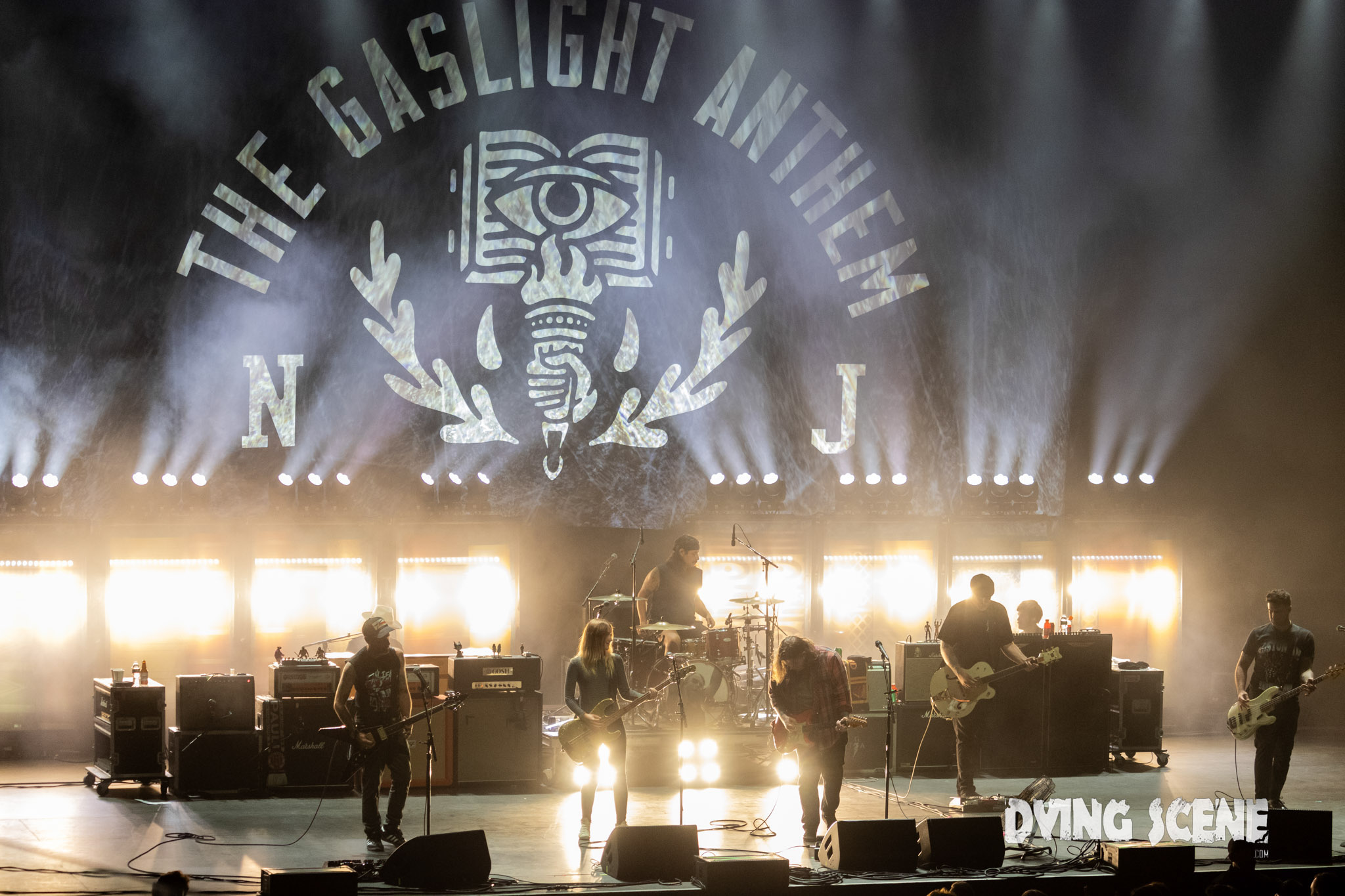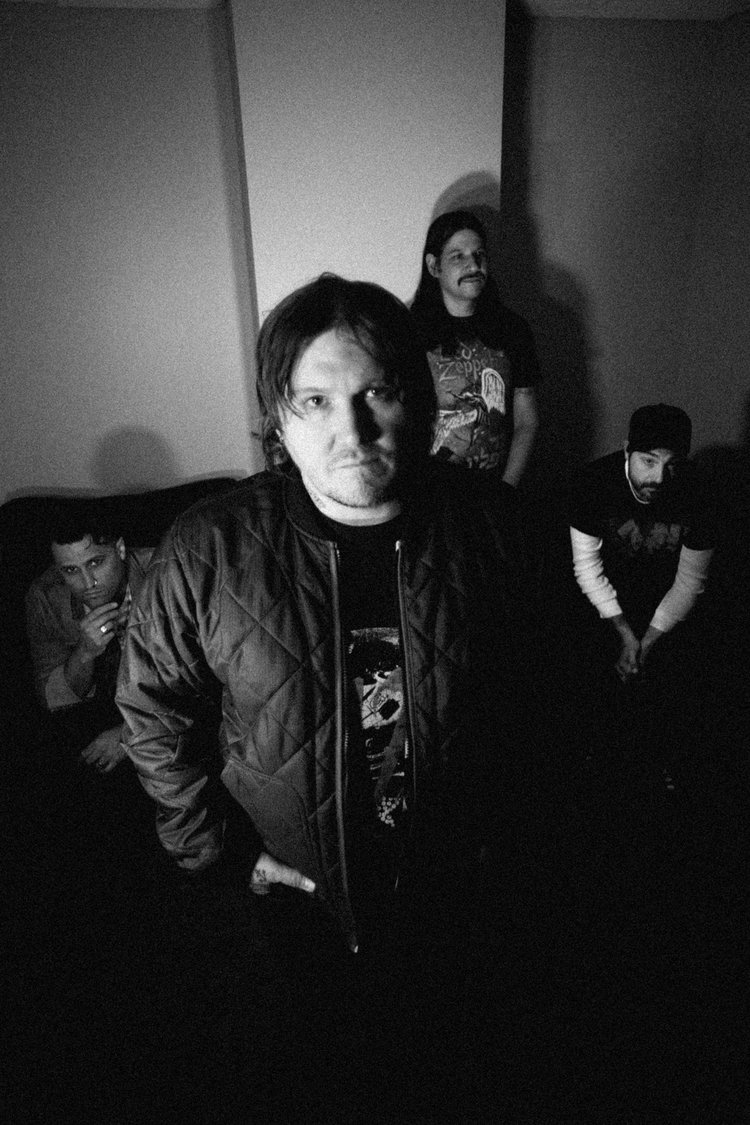I don’t normally start album reviews this way but I thought it was maybe sort of important to mention this time that I am, for the record, a big Mercy Union fan and supporter. I’ve known frontman Jared Hart for a long time and have been a fan of his solo work and his Scandals work and of sideman Rocky Catanese and his various projects (remember Let Me Run?!?) for quite literally as long as I’ve been involved with Dying Scene, which is to say well over a decade. I was at Mercy Union’s first show billed as Mercy Union (October 2017 supporting Racquet Club at Middle East in Cambridge, MA, if you were wondering) and I was at Mercy Union’s last show before Covid-19 forced us inside for a few years (at O’Brien’s in Boston in March 2020 with Secret Spirit and the Nightblinders and Coffin Salesmen if you were wondering, which I’m sure you weren’t because this is a record review and a not a list of “shows Jay has been too).

ANYWAY, all that is to say that I like Mercy Union a lot. And yet, because I’m a professional (lol) journalist with at least some modicum of integrity (not lol, I actually like to think this latter part is true) I tried to take a 30,000-foot view of the new Mercy Union album and put my personal thoughts about the band aside and listen to it objectively. And so I fired it up on the good speakers in my car went for a drive and about halfway through the album, I got so into the music and the sounds and the textures that I quite honestly got lost, having blown way past my destination. White Tiger is great, kids. Really, really great.
The band’s 2018 debut, The Quarry, laid at least a bare framework of 1990s alternative rock influences through a filter of New Jersey punk sensibility, but White Tiger surpasses it on almost every level. White Tiger, the band’s second full-length, puts any fears about a sophomore slump to bed pretty much from the opening notes of album opener “1998.” It’s an uptempo table setter with swirling guitar riffs and a giant, singalong chorus that combine to serve as an instant revelation that whatever extra time the band spent crafting this album during the doldrums brought on by a global pandemic was put to extremely good use.

The soundscape on White Tiger is both sprawling and crystal clear, and while Hart may the songwriting spearhead, it very much sounds like a collaborative, full-band record (which is not to say that The Quarry wasn’t, necessarily, but when you’ve got multiple accomplished songwriters combining forces in a newer project it’s only natural for some songs to sound like they belong to each individual songwriter rather than “the band.” Hell, The Clash very clearly has Joe songs and Mick songs and Paul songs…but I digress). Even “Basements,” which is a track with roots that extend back to Hart’s 2015 Past Lives & Pass Lines solo record is filled out with a full band treatment that creates an epic, massive feel that would have made the perfect springboard for a wonderfully cinematic video that would have been a staple on MTV back in the years when epic, cinematic videos were actually played on MTV. So, the mid-1990s.
Speaking as a child of the ’90s, there are some very clear throughlines on White Tiger that originate back in that time period, but not maybe in the way you’d expect for an album being covered on your favorite newly-relaunched punk rock website. There were a great many of us that cut our punk rock teeth on the Bad Religions and Rancids and Green Days and other Epitaph/Fat/Lookout bands of the day and who maybe didn’t outwardly state how much we also appreciated the parallel track that was modern alternative rock radio and it’s expertly-crafted, tight and melody-driven power pop goodness. Bands like Gin Blossoms and Soul Asylum and pre-“Iris” Goo Goo Dolls and post-Mats Westerberg and The Wallflowers. Admittedly, it wasn’t “cool” to profess your love for songs like “Counting Blue Cars” or “Desperately Wanting” or “Hey Jealousy” if you also had like a Dead Kennedy’s patch and a NOFX patch on your backpack, but I think those of us “of a certain age” long ago gave up on aspirations of being cool and now don’t mind publically citing our affinity for a well-crafted, mid-tempo, radio friendly, melody driven rock and roll song, and I’m here for it. And White Tiger has a lot of that in spades.
Lead single “Prussian Blue,” for example, is anchored by a fuzzed-out lead bassline from Jorgensen as the guitars weave textured layers of harmonics and swirling melodies, and it’s got a massive arena (or even amphitheater) rock-sounding bridge. “Be Honest” finds Catanese and Hart trading vocal duties, while “Jane Way” puts Catanese solely in the spotlight. the former of those songs…can we call it post-emo? Is that a thing or did I just make that up? It’s got a huge, almost gothic soundscape in the bridge. “Evergreen” could probably stand on its own just fine as a solo acoustic track, but it gradually adds soaring synth and keys and strings (many of which were arranged by the multi-talented Jorgensen) and Benny Horowitz’s massive drums (editor’s note: Horowitz played all of the drums on White Tiger before departing the band and returning to his, uh, full-time day job) and layered guitars all in a full crescendo by the last third of the song.
“The Weekend,” which comes right around the album’s halfway mark, is a track that caught me off guard. It spends the first few minutes as one of those radio-friendly, mid tempo rock songs with a chorus that trends more to the delicate side, before completely switching gears entirely at the halfway point with the riffs getting heavier and Horowitz’s drums in full-on attack mode. This is undoubtedly a standout track and is precisely the moment where I blew well past my exit on the aforementioned evening drive. Other songs, like “Redeye (EWR>SNA)” find Hart taking whatever restrictor plates were left off of his voice, letting it soar to heights we’ve only really ever heard teased before. It’s fair to say that he’s leaned into his voice both a songwriter and a vocalist now, and most of the hardcore-inspired gravel of his earlier works is now a thing of the past.
From a sonic perspective, there is a sort of mid-tempo sameness that serves as a groove that many of the tracks settle into. That’s not bad, necessarily, and the variety of textures, particularly when factoring in the guitars and occasional strings and blended voices keep any particular song from sounding too much like any other, either on the album or in the band’s arsenal. If there’s a song on White Tiger that will inspire high-energy punk-rock style crowd push-and-pull, it’s the singalong, call and response verses on “So Long, Siberia.” And that’s good. Because White Tiger, and really Mercy Union circa 2022 by extension, occupies a space in your record collection that nothing else really does.
Pre-orders for White Tiger are still available here.




